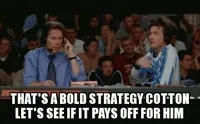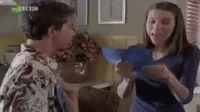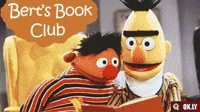 |
| me before taking this class |
When I first registered for classes this fall and saw that I
had to take this class, I had no idea what it really was. I had no idea what
content area literacy was, and my first impression was that this was going to
be a writing course for me. I wasn’t excited about this class because I
purposely chose math and science as my subjects to avoid reading and writing.
However, my mindset has changed over the course of the semester by just
learning about what content literacy is and seeing how much literacy strategies
can help improve reading in my content areas.
As much as I dislike reading and writing it is necessary to
do sometimes in both math and science. I’ve had teachers in the past assign
textbook readings as homework, which seems like a simple task, but has been
difficult. Science and math textbooks are written differently than what we’re
used to reading. In our Subject Matters textbook,
they talk about this and how informed readers read those texts differently. Personally,
I don’t think I would want to assign textbook readings, but I think exposing
students to scientific articles and research papers is important. Before I
would ever make my future students read them, I would teach them how to read
them. I want to do this by doing a think aloud, most likely on the topic of
evaluating or analyzing. I would also teach them the structure of the articles
and papers so they know how to navigate through them and get the information
they need.
Throughout the semester, we’ve been learning about different
strategies to help build content area literacy. The one I think has been the
most impactful are think alouds. I like that the think alouds really showcase
how to read and emphasize the necessary skills. This is so beneficial to
struggling readers because as a teacher you literally get to model and show
them what they need to do to help them understand what they are reading. A
think aloud I would want to do in my future classroom is one where I read a
word problem and focus on evaluating as my skill. I think this would be really
beneficial to students because in school were always going to have tests, and
standardize tests like to try and trick students with unnecessary information.
By doing this kind of think aloud, I think this will really help students pick
out the necessary information needed to solve a word problem. This think aloud
is something I can do in both a science and math class.
 Another strategy I
really liked was frontloading with images. I really like using this because it’s
an interesting start to get students interested and engaged with the text.
Using this strategy also allows students to use their inferring skills to try
and figure out what the text will be about. This strategy also helps build
connection skills because students are trying to connect these images to what
they will be learning and once they start reading the text, they will start
thinking back to those images and make the connections they couldn’t see
before. I will definitely be using this strategy in both math and science
classes because there is a lot of versatility in using this strategy. Overall, I’m thankful to have taken this course and to have
learned the importance of content area literacy and how to build reading
skills. I feel prepared to include reading content in my future classrooms,
whether I teach math or science, and I will definitely have my Subjects Matter book with me so I’ll
always have strategies and the other resources on hand. (614)
Another strategy I
really liked was frontloading with images. I really like using this because it’s
an interesting start to get students interested and engaged with the text.
Using this strategy also allows students to use their inferring skills to try
and figure out what the text will be about. This strategy also helps build
connection skills because students are trying to connect these images to what
they will be learning and once they start reading the text, they will start
thinking back to those images and make the connections they couldn’t see
before. I will definitely be using this strategy in both math and science
classes because there is a lot of versatility in using this strategy. Overall, I’m thankful to have taken this course and to have
learned the importance of content area literacy and how to build reading
skills. I feel prepared to include reading content in my future classrooms,
whether I teach math or science, and I will definitely have my Subjects Matter book with me so I’ll
always have strategies and the other resources on hand. (614)


